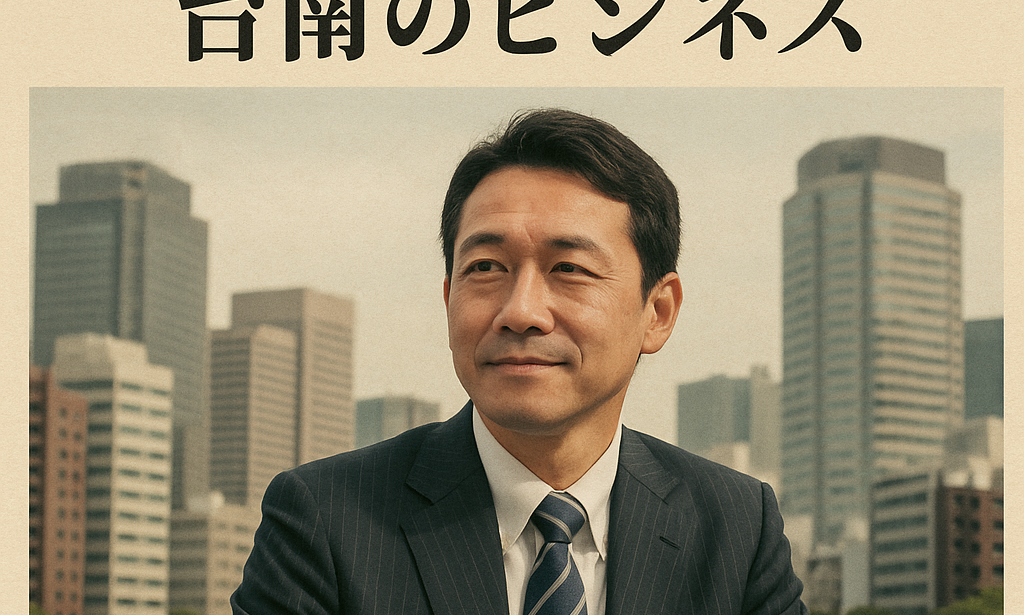Tainan’s Business Landscape: Tradition Meets Innovation
Tainan, Taiwan’s oldest city and former capital, is not only rich in history and culture but is also emerging as a dynamic hub for business and innovation. While often overshadowed by Taipei’s global profile and Kaohsiung’s industrial strength, Tainan has carved out a unique space by blending traditional industries with new economic growth drivers.
Traditional Industries Still Thrive
Tainan has long been known for its agriculture, food processing, and handicrafts. Local companies continue to specialize in products like dried fruits, soy sauce, and seafood. These industries, deeply rooted in tradition, maintain both domestic and export value. Many family-run businesses, some with over a hundred years of history, are now modernizing their branding and expanding via e-commerce platforms.
Technology and Innovation on the Rise
With the presence of Southern Taiwan Science Park and proximity to top universities like National Cheng Kung University, Tainan is becoming a center for high-tech industries. Sectors such as biotechnology, semiconductors, and green energy are attracting investment and talent. The city is positioning itself as an ideal base for startups and SMEs seeking affordable infrastructure and access to research institutions.
Supportive Government and Ecosystem
The Tainan City Government actively supports business growth through incentives, startup grants, and streamlined regulations. Coworking spaces, incubators, and accelerator programs are increasing, helping entrepreneurs and young professionals connect and scale.
Cultural Tourism and the Creative Economy
Another strong sector is cultural tourism. With its temples, traditional architecture, and renowned street food, Tainan draws millions of domestic and international visitors each year. Businesses in hospitality, design, and cultural products benefit from this tourism boom, especially as the city promotes its creative economy.
Outlook
Tainan is proving that economic growth doesn’t have to come at the cost of cultural identity. Its business environment supports both legacy industries and emerging innovation. As Taiwan looks to balance development across regions, Tainan stands out as a city where tradition and entrepreneu
rship go hand in hand.
Introduction: A City Reimagining Its Identity
Located in the heart of southern Taiwan, Tainan is a city deeply rooted in history, often referred to as the cultural capital of the island. Known for its temples, traditional markets, and vibrant street life, Tainan is now embracing a new identity—one that combines its rich heritage with a forward-looking vision for economic development. While Taiwan’s capital Taipei dominates international business headlines, Tainan is quietly becoming a vital center of innovation, small business development, and sustainable entrepreneurship.
1. Anchored in Tradition: The Strength of Local Industry
Tainan's economy has long been built on agriculture and small-scale manufacturing. The city remains a major producer of rice, fruits, and seafood. Artisan products—such as soy sauce, dried mango, and handmade textiles—are more than just souvenirs; they represent generations of craftsmanship. Many of these family-owned businesses are adapting to the digital age by launching websites, adopting QR code-based payments, and engaging with global consumers through e-commerce platforms like Shopee, PChome, and Amazon.
Moreover, Tainan’s Anping District, once home to early Dutch settlers, is now a thriving commercial zone known for locally made products, drawing tourists and investors alike.
2. The High-Tech Shift: Innovation in Southern Taiwan
In the past decade, Tainan has rapidly emerged as a high-tech hub, thanks in part to the Southern Taiwan Science Park (STSP). Established to support the island’s high-tech development beyond Taipei and Hsinchu, the STSP has attracted major players in semiconductors, biotechnology, AI, and green energy.
Companies like TSMC (Taiwan Semiconductor Manufacturing Company) have increased their presence in the region, contributing to job creation and infrastructure growth. With support from National Cheng Kung University (NCKU) and its robust research ecosystem, the city has positioned itself as a logical base for innovative startups and SMEs.
Startups in med-tech, robotics, smart agriculture, and renewable energy are thriving in newly developed tech clusters, aided by government grants, incubators, and international collaboration programs.
3. Government as a Catalyst: Policies that Empower
Recognizing its strategic potential, the Tainan City Government has prioritized business-friendly policies that aim to attract both local and foreign investment. Measures include:
Startup incentives and low-interest financing
Tax benefits for new tech companies
Subsidies for green energy adoption and R&D projects
Land and office space support in designated economic zones
Tainan’s Economic Development Bureau frequently partners with local universities, international chambers of commerce, and trade offices to promote industrial matchmaking events, investor summits, and overseas delegations.
4. Creative Industries and Cultural Tourism
The boom in cultural tourism is another pillar of Tainan’s business success. The city welcomed over 10 million visitors in recent years, many drawn by the city’s festivals, food, and historic architecture. Businesses in hospitality, fashion, and the arts are flourishing, especially those that emphasize local stories and sustainable practices.
Boutique hotels, independent cafés, and artisanal brands (like Tainan-style pastries or handmade pottery) are leveraging the “Made in Tainan” label as a mark of authenticity and pride.
Government efforts like the "Cultural Creativity Development Plan" and cross-strait design exchanges are helping transform these sectors into export-worthy industries.
5. Challenges and the Road Ahead
Despite its growth, Tainan faces challenges including brain drain to Taipei, aging infrastructure, and climate resilience in the face of typhoons and heatwaves. To overcome this, the city is investing in smart urban planning, improving rail and transport links, and building up its green economy.
International collaboration—particularly with Japan, South Korea, and Southeast Asia—is also key to the city's future. Tainan is positioning itself not only as a regional innovation center but also as a gateway to Southeast Asia, aligning with Taiwan’s New Southbound Policy.
Conclusion: A Future Built on Harmony
Tainan’s story is unique. It is not trying to outpace Taipei or Kaohsiung, but instead crafting a new identity—an innovative economy rooted in culture, craftsmanship, and community. For investors, entrepreneurs, and creatives, Tainan offers a rare opportunity: to build a future that honors the past.


Nice
Nice
Enlightening
Ok
Interesting
You must be logged in to post a comment.